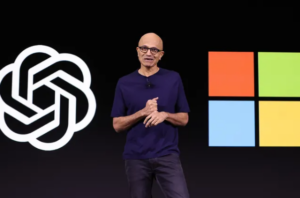Emails between Microsoft CTO Kevin Scott, CEO Satya Nadella and co-founder Bill Gates revealed that the company invested $1 billion in OpenAI in 2019 because it was very concerned that Google was years ahead with its AI efforts.
The email, titled “Thoughts on OpenAI,” reveals high-level discussions about the investment opportunity in the months before the Microsoft partnership was announced. The email was released Tuesday as part of an ongoing US Justice Department antitrust case against Google.
“We are several years behind our competitors in machine learning scale,” Scott wrote in a June 12, 2019 email to Nadella and Gates. He details how it took Microsoft engineers six months to copy Google’s BERT language model and train it “because our infrastructure was not up to the task.”
“As I tried to figure out where the gaps were in Google and our model training capabilities, I became very, very concerned,” Scott wrote.
Some of Google’s early AI models helped it gain a competitive edge over Bing, Scott said, and he even praised Google’s autocomplete features in Gmail.
Nadella responded to Scott’s thoughts on OpenAI by relaying it to Microsoft CFO Amy Hood, noting that this is why I want to do it. Hood is a key member of Microsoft’s senior management team and is tasked with overseeing the company’s financial goals and keeping Microsoft’s spending under regular control.
Although Gates resigned from Microsoft’s board in 2020 amid an investigation into an affair with an employee, he is said to still be heavily involved in Microsoft’s ongoing relationship with OpenAI. This internal email doesn’t say who initiated the discussion about OpenAI in 2019, but Business Insider reported earlier this week that Gates has met regularly with OpenAI since 2016 and helped broker the deal.
Microsoft has now invested more than $13 billion in OpenAI, adding its models to Office applications, the search engine Bing, Edge, and even the Windows operating system. This has helped Microsoft to be seen as more of a leader in AI, rather than a laggard as it once feared five years ago.
Source: The Verge

